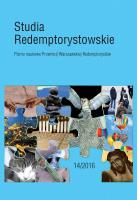Auguste Comte’s “first philosophy” in Barbara Skarga’s reception
Auguste Comte’s “first philosophy” in Barbara Skarga’s reception
Author(s): Ryszard Adam PodgórskiSubject(s): Philosophy, History of Philosophy, Epistemology
Published by: Warszawska Prowincja Redemptorystów
Keywords: first philosophy; metaphysics; theology; liberalism; positivism;
Summary/Abstract: 20th-century positivism was represented by the Circle of Vienna. The ideas developed in the Circle of Vienna were welcomed in the Lviv–Warsaw School in Poland. However, it was a critical reception – none of the Polish philosophers held the full set of views typical of Western European positivism. Disciples of Kazimierz Twardowski (1866–1938) – co-creator of the school – were trained by their mentor to carry out detailed analyses of philosophical language (K. Ajdukiewicz), spent much time dealing with logic and semantics (J. Łukasiewicz, A. Tarski) and partly with ontology and ethics (T. Kotarbiński). Like positivists, they were nominalists and, like them, they did not trust metaphysical statements. But, unlike German positivists, they never took extreme positions. The Lviv–Warsaw school had some successes of international significance (Łukasiewicz – discovering multi-valued logic, Tarski – the semantic theory of truth). To some extent, it also affected the development of post-war Polish philosophy
Journal: Studia Redemptorystowskie
- Issue Year: 2016
- Issue No: 14
- Page Range: 83-91
- Page Count: 9
- Language: English

